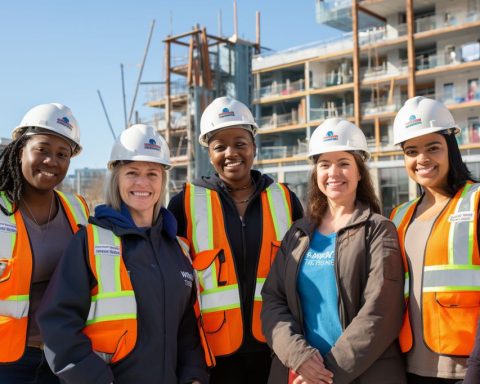Minister of Human Settlements, Mmamoloko Kubayi, highlights the need to address the challenges faced by women in obtaining government-subsidized homes. In this article, we explore her recent call for policy changes and her efforts towards empowering women in the housing sector.
Disqualification of Women from Obtaining Government-subsidized Homes
Minister Kubayi expressed concern over the disqualification of women from obtaining government-subsidized homes, known as Breaking New Ground (BNG) houses, due to joint ownership policies. In many cases, women who have already received a government housing subsidy are unable to receive another one, even after separation or divorce. The Minister called for a policy review to better address the needs of women seeking refuge from unsafe living conditions, particularly in light of increasing Gender-Based Violence (GBV) and divorce cases.
Celebrating Women’s Contributions to Sustainable Human Settlements
In celebration of Women’s Month, Minister Kubayi praised women’s contributions to providing sustainable human settlements. She highlighted how women have helped deliver over 3 million housing opportunities through the Department of Human Settlements. The Minister acknowledged the crucial role women play in housing projects, emphasizing that “behind every housing unit that this government has delivered, there is a woman.”
Promoting Gender Equality in the Housing Sector
Despite women’s active participation in the housing sector, the Minister recognized the need for further efforts to ensure equal economic opportunities for women. She urged provinces to use Women’s Month as a time of reflection on the progress made towards achieving gender equality and enabling women to access at least 40% of work opportunities. The Minister also paid tribute to trailblazing women who fought for gender equality and laid the foundation for future generations to have equal opportunities in all aspects of life.
Empowering Women in the Housing Sector
As part of its commitment to women’s empowerment, the Department of Human Settlements plans to hold a Women in Human Settlements Indaba this month. The event aims to discuss strategies to increase women’s economic participation in the sector and explore opportunities for advancing women’s interests, focusing on areas such as access to markets, finance, and innovative building technologies. By revising current policies and promoting women’s empowerment in the housing sector, the Minister aims to create a more equitable society that provides support and opportunities for all.
In conclusion, Minister Mmamoloko Kubayi has called for policy changes to address the challenges faced by women in obtaining government-subsidized homes, particularly in the context of GBV and divorce. Her efforts towards empowering women in the housing sector are commendable, and we hope to see more progress towards achieving gender equality and providing support for all those in need of safe and sustainable housing.












